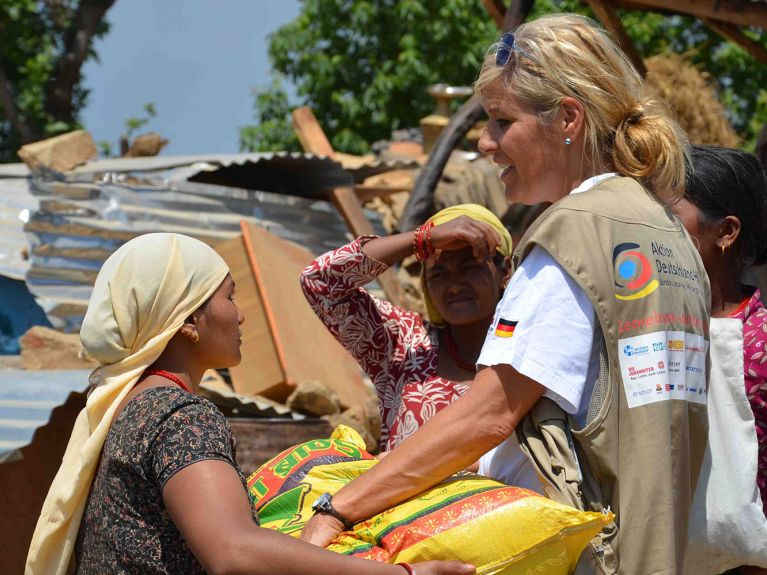“Epitome of humanity”
Humanitarian assistance supports people in acute need. We present an overview of Germany’s commitment and its central principles.

There is great hardship worldwide. “Twice as many people depend on humanitarian assistance today than three years ago,” said Foreign Minister Annalena Baerbock on the occasion of World Humanitarian Day on 19 August. She also made it clear that now was not the time for economies. That is why the Federal Foreign Office, the Federal Government ministry responsible for humanitarian assistance, is making available 2.77 billion euros in the current year. This makes Germany the second largest donor worldwide, a position it has held for many years. In 2021, the greatest support went to the victims of the Syrian civil war and the people of Afghanistan, Yemen, Somalia, South Sudan and the Democratic Republic of the Congo.
Based on humanitarian principles
Humanity, neutrality, impartiality and independence are the central principles on which German humanitarian assistance is based. That means, for example, that assistance must be based only on need and that aid organisations must act neutrally. Humanitarian assistance is carried out by independent – and therefore, as a rule, non-governmental – partners. Most important here are the organisations of the United Nations and the International Red Cross and Red Crescent Movement.
Providing humanitarian action for over 150 years: ICRC movement
The International Red Cross and Red Crescent Movement sees itself as the “world’s largest humanitarian network”. It consists of the International Committee of the Red Cross (ICRC), the International Federation of Red Cross and Red Crescent Societies as well as 190 national associations. The beginnings of this movement go back more than 150 years: the founding members of what was later known as the ICRC met for the first time in Geneva in February 1863. The International Committee of the Red Cross still has its headquarters in the Swiss city today.
Important partners: UN organisations
When it comes to humanitarian assistance, Germany works especially closely with various United Nations bodies – for example, the United Nations High Commissioner for Refugees (UNHCR), the World Food Programme (WFP) and the United Nations Children’s Fund (UNICEF). Germany is also one of the largest supporters of UN programmes. In 2021, for example, the Federal Republic was the second largest donor to the UNHCR after the USA with a contribution of almost 490 million US dollars. Germany is also the second largest contributing partner to UNICEF with a core contribution of about 70 million euros in 2021. In addition, the Federal Ministry for Economic Cooperation and Development (BMZ) pledged further project-related funding totalling over 550 million euros. Above all, however, humanitarian assistance is carried out by hundreds of thousands of aid workers that Foreign Minister Baerbock considers “the epitome of humanity, courage and commitment”.
You would like to receive regular information about Germany? Subscribe here:


